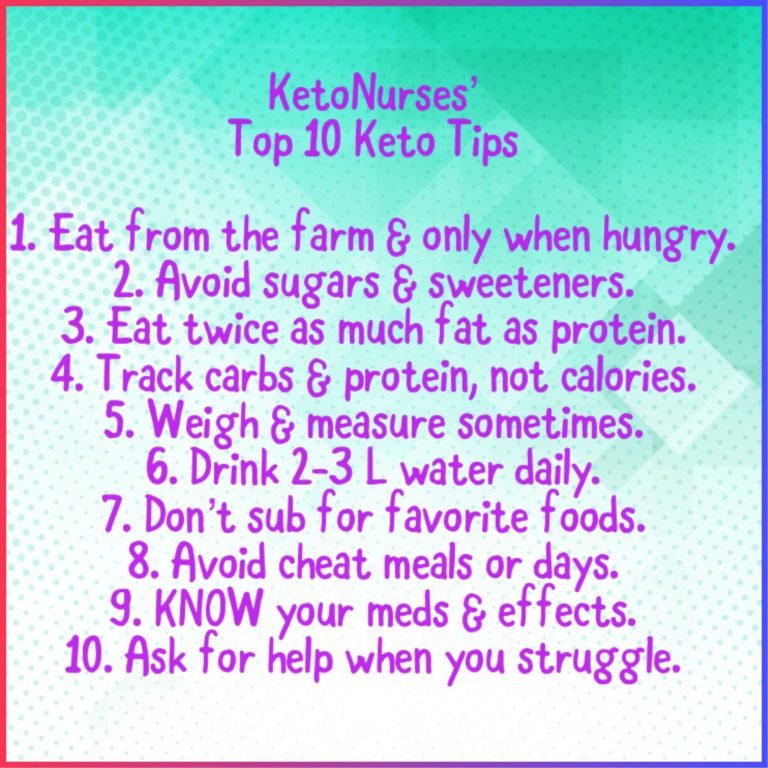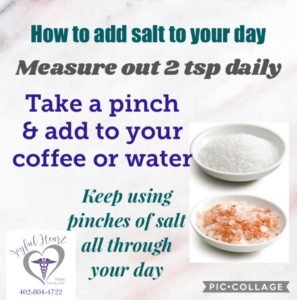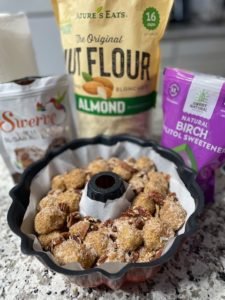Recently, I’ve answered a variety of questions about ketogenic eating and thought I might address some of them here in one blog article.
- One of the most common issues I’m asked to address is the impact of exercise on glucose. The answer for each person is different, because each of us is unique, and our bodies are responding to the internal chemistry in THAT specific moment. Some people see a significant elevation in glucose during or after exercise, while others see a big drop; others, of course, see little change at all. Which effect is the “NORMAL” response by the body? All of the above. Exercise is a physical stressor and can increase cortisol and adrenaline in some people; on the other hand, exercise can burn glucose for fuel and/or be very relaxing for others, resulting in lower glucose impact. Typically, I encourage exercise for general health’s sake, but NOT for glucose control or weight loss. Many studies over the years have shown very little OVERALL impact on glucose levels or weight loss from exercise, even though exercise is great for toning, stamina and endurance – all of which can improve general health and well-being. When just beginning a low carb eating plan, I usually discourage a lot of exercise; changing the dietary intake is a chemical stressor, and the body can take 3-6 months to fully adapt to efficient fat-burning. During this short-term transition, exercise may contribute to additional stress on the body, internally, resulting in chemical imbalances that trigger cortisol release as well as glycogen storage release from the liver. Muscles may also release stored glycogen, adding to the elevated blood sugar levels. Other low carbers may see lower blood sugar levels because of the use of the glucose for fuel; previously, we thought only glucose could be used for exercise. That idea is where the concept of “carbing up” before and during exercise originated. However, we now know that fats can fuel exercise too, but is most efficient AFTER the body has adapted to burning ketones. So, what is the bottom line? Every person responds differently to exercise; adjust YOUR daily lifestyle based on glucometer readings. Avoid stressing the body with exercise if it raises glucose during the transition to ketogenic eating. Return to exercising after glucose levels stabilize; sometimes a short walk, or some mild yoga, pilates, or Tai Chi can be used as exercise, with minimal glucose impact. Patience is the key, no matter what impact exercise has on glucose readings; on a low carb way of eating, exercising or not, glucose will stabilize.
- Another common question I hear often is about electrolytes and supplementation. I do have a lengthy Facebook Live video on my KetoNurses Facebook page where I discuss this information in detail and answer many viewer questions, but I will try to address the issue here in a quick and short explanation. Typically, a ketogenic way of eating provides MANY more nutrients than our Standard American Diet did; so for many of us, there are not a lot of supplements needed. However, we’ve been VERY deficient in many nutrients for so long that a sudden dietary change can make that deficiency more apparent; for others, adding certain supplements just seems natural after reading and watching internet “experts” on ketogenic eating. However, most of them are just trying to sell their products. As a general rule, Vitamin D is a necessary supplement for most because we do not get nearly enough sun exposure anymore; we cover up, we apply sunscreen, and we avoid going out nearly nude around noontime. Unless living near the equator and sunning nearly nude at noon, there’s no way to obtain adequate Vitamin D from sunshine; I have an entire blog article related to more info on Vitamin D if you’d like to read it. Link is here: https://joyfulhearthousecalls.com/what-is-vitamin-d-why-do-i-need-it/ In addition, people often begin supplementing magnesium for a variety of reasons, including the need to improve absorption of Vitamin D. Again, more on this use of magnesium for this purpose in addressed in the article above. Other reasons to supplement magnesium is the vast array of bodily functions that rely on magnesium; it’s required for over 300 chemical processes, including those related to food digestion, nervous system function, brain health, and protein production/use. There are a myriad of types of magnesium products and some are combinations of a variety of types. All magnesium types help with all processes, but most types have a “best” benefit, as described in this graphic.
3. Other supplement questions I get often concern B vitamins, CoQ10, ALA, cinnamon, chromium, zinc, and berberine. I do often recommend B vitamins, but a very specific type of B, not the usual ones that contain cyanocobalamin as the active Vitamin B12. Cyanocobalamin is the most common and one of the least expensive forms of B12, but it’s estimated that about half of us cannot break the cyanide molecule away from the cobalamin molecule. If not separated, these chemicals remain bound and completely unusable by our bodies, resulting in poor absorption of Vitamin B12. Usually, I recommend B complex vitamins that contain methylcobalamin and a calcium-methylfolate for most people because using this form is adequate for the majority of people, will not harm people that CAN utilize cyanocobalamin, and is readily available in many supplements. These people often have a gene mutation that prevents normal absorption and utilization of B12, which is essential to many body processes and functions. Often seen as MTHFR, the mutation impacts the production of methylenetetrahydrofolate reductase, and when this enzyme is absent, methylation cannot occur properly. What is methylation? Methylation is a necessary metabolic process that repairs DNA, turns genes on and off, and is used to separate a variety of chemical compounds into smaller and more absorbable nutrients. Some people have NO symptoms or problems when they have the MTHFR gene; others have severe symptoms and health conditions. And some health professionals/organizations recognize MTHFR very differently. In addition, there are a few people who cannot even absorb or utilize the methyl form of Vitamin B12; these people often have to use a prescription form of hydroxycobalamin. For more info about B12, this video is a good source: https://m.youtube.com/watch?v=BvEizypoyO0
4. Other supplements are mostly personal choice and may be helpful for some people, but a more specific health history is needed to make that call; I do schedule phone consults to help people sort through these specifics. I never recommend shakes, programs, or other expensive keto-based products to my clients; I try to keep recommendations to a minimum, keeping costs and convenience in mind as well. As for berberine, I have written an article about its use as well; it compares nicely to metformin and as such, should NEVER be taken WITH metformin. Choose. My article on berberine can be found here: https://ketonurses.com/2018/08/berberine-worth-it-or-just-a-mythical-unicorn/
5. Another supplement issue that sometimes comes up is related to blood thinners. Many people with diabetes also have atrial fibrillation, clot history, or other need for anti-coagulation therapy. It is important that you are aware that MANY supplements and medications can act as a “blood thinner” when taken regularly. It is VITAL that you share this information with your prescriber so that adequate adjustments can be made in your treatment plan BY YOUR PRESCRIBER. Many health care providers are NOT aware of side effects of many OTC supplements; they often are not even aware of supplement action or purpose; they almost certainly are unaware of potential side effects. If you are in doubt or are concerned, use drugs.com, rxlist.com, or epocrates.com to research your meds/supplements. Aspirin is often recommended/prescribed for those with history of heart attack, certain strokes, many types of clots, or as prevention of such problems. Aspirin prevents the “clumping together” of blood cell components; it does NOT directly “thin” blood, although that is what we call its action. In addition, NSAIDs, like ibuprofen, naproxen, indomethacin, and meloxicam also list bleeding as a side effect. It is important to notify your prescriber o of any additional supplements if you are taking aspirin, NSAIDs, or any blood thinning medication. Fish oil, in high doses – over 2000 mg per day – can be a significant anti-coagulant; turmeric also labeled as curcumin acts as and anti-inflammatory agent and may contribute to bleeding too. Vitamin C may also “thin blood” and so should be taken with caution if on any of these other agents.
6. Many folks also ask about using protein shakes, supplements, or ketone supplements. As a general rule, these are unnecessary and pricey. There are a very few patients with very specific conditions that can benefit from these products, but again, a phone consult to thoroughly discuss your specific medical history and medication use are vital. It’s extremely important to develop a patient-client relationship with a medical provider or health coach who is knowledgeable about medications and lab results; do NOT rely on social media and “friends” to help you decipher life-impacting medical treatment.
7. Another common concern is a bit more complex; it’s about the “cause” of our diabetes; most of the people who follow my blog, Twitter, IG, and Facebook page have type 2 diabetes, Polycystic Ovarian Syndrome (PCOS), insulin resistance, obesity, elevated cholesterol/triglycerides, or some combination, often referred to as metabolic syndrome. While we did it to ourselves, we did NOT cause the problem. We were following dietary advice provided by medical practitioners, nutritionists, and all sorts of agencies that TOLD us how to eat “healthy.” Nina Tiecholz has written extensively about how we were all “grainwashed” over the past 50+ years; her book, The Big Fat Surprise, provides information about the “science” that was used to develop and publish dietary guidelines. She debunked all the famous studies and provides great information about how the health of Americans was impacted by those studies and strong personalities. I believe that EVERY medical professional, nutritionist, nurse, and dietician should be required to read her book as part of school/training. Her work with the Nutrition Coalition is extremely important to the future health of Americans; if you are not following her work, now is a good time to find and follow her. She more recently has begun to speak about the politics of food; her 2017 video presentation here discusses the statistics and shows how Americans HAVE followed dietary advice and yet, we continue to get sick. https://www.youtube.com/watch?v=FXjB-5-uzuw Other authors have also written about the relationship between high carb intake and metabolic dysfunction; one of my favorite books on the topic is The Art & Science of Low Carb Living by Jeff Volek and Steve Phinney; Dr. Jason Fung’s The Obesity Code is another. Jeffrey Gerber and Ivor Cummins’ new book, Eat Rich Live Long is another fave, as is Keto Living Day by Day, by Kristie Sullivan. All of these books have great information about the relationship of carbohydrate intake and out health problems. Do your research, but do NOT “blame yourself” for your health. We were “just following the rules.”
8. Probably THE most common question I hear today is about cholesterol and medicines used to treat or prevent heart problems “caused by high cholesterol.” Again, this topic requires some research based on YOUR personal health, labs, and medical conditions. In general, many studies over recent years have begun to show that cholesterol, in and off itself, is NOT a health hazard. Cholesterol is essential to health, and about 85% of it is MADE BY OUR BODIES; only about 15% of our cholesterol in our bodies comes from the foods we consume – keep those numbers in mind. The liver produces cholesterol for our bodies to use multiple processes, especially making and maintaining cell membranes. Every single cell – all 38 TRILLION cells – require cholesterol. Cholesterol is the base ingredient for many hormones, especially reproductive ones, like estrogen and testosterone. How can we expect reproductive processes to function normally if we use drugs that completely destroy the body’s natural production of essential-to-life hormones? I cannot imply that you should or should NOT take any medication; that decision is between YOU and YOUR prescriber. But I will recommend that you do your research, study cholesterol and the medications; we should NEVER accept anyone’s word at face value any more. Today’s world is full of technological advances, and information is available at our fingertips. Yes, medical professionals will prescribe, encourage, and even bully patients into taking medications, but always remember the Hippocratic Oath that includes “do no harm” first and foremost. We are trained to prescribe drugs to “fix” the problem; we were NOT taught to use diet, nutrition, or “lifestyle medicine” as recommended treatments. We are learning right along WITH YOU.
9. Another common problem that arises with any dietary change is slow gut motility, often called constipation. The most common cause of abdominal pain in all patients today is chronic constipation. And most Americans (estimated to be 80% or more) suffer from chronic constipation at least on occasions. And changing what you eat will impact the gastrointestinal (GI) tract and its motility because the gut must learn about its new contents – but let me be clear, LCHF does not cause constipation; it actually can contribute to loose stools because of the fats causing everything to be slick, “lubed up” if you will.
To decide if you might have constipation, ask yourself these questions; do you:
have more than 1 day a week that you do NOT poop?
have watery stools?
have hard balls for poop?
ever have explosive diarrhea?
ever have tiny smears of blood on tissue with a BM?
ever strain or wait for long periods of time to poop?
ever feel like there should be more poop in the toilet?
ever feel like there’s more poop inside that should be emptying?
have lower abdominal pains/cramping?
feel bloated and overly full, even short of breath at times?
suffer with reflux, indigestion or heartburn?
have reported diverticulosis on imaging or colonoscopy?
If you answer yes to 2 or more of these questions, I can promise you that the problem is most likely chronic constipation. It can be VERY subtle but it’s there.
The most common cause of chronic constipation is our SAD (standard American diet), full of poorly digested carbs and processed/breaded meats. All those carbs act like glue in our intestines, and will eventually push on the pockets along the colon, forcing enlargement of the pockets; this stretching and enlargement is known as diverticulosis. In addition, almost every single medication on the market today lists constipation as a common side effect. Multiply that effect by the 3-5 meds most people take, and its TROUBLE in the gut.
Many people will occasionally use a laxative or colon cleanser to completely empty the gut. While not safe to use daily, it might help to try one and see if your symptoms are relieved. High fat intake will eventually retrain a constipated gut to go more regularly. High fat intake will also eventually heal some of the damaged gut lining; how does gut damage occur? From a lifetime of poor nutrient intake. Nutrients are absorbed along the way as food is digested. There is only a very thin layer of protective mucus that lines the intestines. Easily injured from wastes moving through too slowly, intestines with a damaged membrane of mucus are not repaired easily and can contribute to leaky gut syndrome, various infections, and chronic constipation.
So, you still don’t think you’re constipated? But you’re having heartburn, indigestion, or reflux? A study from a couple years ago suggested that 85% of people with reflux/severe indigestion actually suffered from constipation and theorized that the constipation is the most likely cause or contributing factor for their reflux symptoms – because if wastes aren’t coming out normally from the bottom, they have nowhere else to go but up. And that makes totally logical sense. So, you’re finally you’re convinced you may have some poop still stuck along your GI tract and maybe have some damaged gut lining. How do we fix it?
First of all, LCHF provides most of the necessary nutrients and best sources of healing factors for our bodies, including the gut. However, many people find that when altering diet intake, the gut responds in an uncomfortable way by slowing down even more. It’s the change in nutrition, combined with not enough water, and usually a lack of magnesium and salt that cause this reaction. Sodium and potassium are required for muscle contraction; deficiencies in these minerals are frequent while learning LCHF eating and are common side effects of many medications, especially ones for blood pressure and diabetes. In addition, most of us are deficient in magnesium which aids in gut motility, and we’ve been deficient for quite some time. Most LCHF experts will typically recommend drinking salty bone broth to relieve headaches, but people drink a cup or so and are done for the day not realizing the variety of muscles that need the minerals in that broth. More is usually better, but there’s not an amount that we recognize as helpful for everyone – I’d venture a guess at about a quart of broth daily during the first week or two of LCHF eating, but that’s a total guess. Others may have a recommendation as to the amounts they’ve used to help them; my suggestion is to read all the suggestions and then try different amounts on different days for your own experiment. As for magnesium supplementation, keep dose low to avoid diarrhea; some people will increase dosing every few days to minimize gut impact. Most people’s guts will react violently to doses over 400 mg a day; as you review the graphic I provided above, you’ll see that some forms of magnesium impact the gut more than others. Threonate, glycinate and taurate rarely contribute to loose stools.
Healing of the gut will also be encouraged by consuming pre-biotics…. foods from which the gut can produce its own probiotics. Fermented foods are optimal sources of pre-biotics. Fermented foods include sauerkraut and kimchi. Sometimes kumbucha can be low carb enough to drink in small quantities, but read labels carefully if using pre-packaged pre-biotics to be certain of carb/sugar content. You can also find probiotics over the counter or online, but refrigerated ones typically contain highest colony counts of healthy bacteria. In addition to eating pre-biotics, butyrate is necessary to gut health. Butyrate is an essential fatty acid – essential means our bodies MUST have it for normal body processes. Best source of butyrate? Butter. Real. Natural. Butter. So be certain to consume a lot of butter; cook in it. Add it at the table. Add it to coffee or tea.
Add 2 TBSP of butter to every plate with protein on it to ensure adequate protein absorption — the Vitamin A in the butter is VITAL for good protein absorption.
Fiber. So, did you notice it wasn’t my first “miracle cure” for constipation? Fiber has been the mainstream medical providers’ cure-all for constipation for years. But recently it’s come under fire for contributing to constipation and irritating bowels. Fiber acts to BULK. Bulking is the process whereby fiber absorbs water from the gut until the fiber has swollen to maximal capacity. The theory behind increasing fiber is that this swelling fiber would fill all the diverticula (pockets) in the colon, and slowly, very slowly, the fiber would be forced through the intestines, moving wastes out. But for most people this bulking causes terrible bloating, gas and abdominal pain; some people have even developed obstructions from bulking agents becoming stuck, especially in some of the sharper turns of the GI tract. Some studies are even suggesting fiber is contributing to IBS, UC, Crohn’s and some GI cancers. Early studies suggested fiber helped with gut motility, but none of recent date have been able to reproduce similar results, leading many experts to believe there are “confounding factors” that were not taken into account in earlier studies. While SOME people can use fiber supplements with good results, it’s very individualized. If you have very watery stool that you have investigated thoroughly and KNOW the cause is a medicine (like metformin), a trial of fiber supplementation may prove helpful as the fiber will absorb lots of that extra water, resulting in more normally formed stools. This type of use is typically my only recommendation for using fiber nowadays.
Rory is a good friend and great low carb expert; he says, “Research is showing that optimizing bowel health involves both the use of prebiotics, such as inulin and/or a galacto-oligosaccharide, and also, a probiotic containing multiple strains of healthy bacteria. Inulin (not a misspelling: inulin–not insulin) does contain some amount of carbohydrate in the one or two teaspoons that might be appropriate. So, if you chose to use it, you would need to account for the carbs as part of your daily allowance. Dr. William Davis, who has emerged as one of the most knowledgeable doctors on gut health, was the source for my information to you. He teaches that this approach is better. If you want more information, I’d encourage you to purchase one of his books that discuss this.”
10. What salt do I eat is another common question. It really is a personal choice. Just keep in mind that iodine is added to table salt to help ensure that we get adequate iodine for thyroid health. When we cut out all the processed carbs, the iodized salt intake also drops significantly, putting thyroid health at risk. Pink Himalayan, sea, and other specialty salts do NOT have iodine added, nor do any of them have adequate amounts of iodine NATURALLY. Many people will use a combination of specialty salts and table salt; others will take an iodine supplement. Some vitamin D supplements contain iodine or sea kelp. Check labels to be sure. In addition to the iodine, we need more salt than we think. Previous recommendations have suggested we need approximately 4000 – 5000 mg of salt per day; some low carb experts are suggesting even more. Salt is essential. Don’t shortchange yourself. Keep an eye on your thyroid labs, if you completely eliminate iodized table salt from your intake.
BONUS: Our last question deals with blood pressure on keto. Some low carb experts are beginning to suggest that high blood pressure may be the earliest sign of insulin resistance. Long before glucose or Hgb A1c rises, and long before obesity develops, blood pressure may be creeping upwards in response to insulin resistance, according to some experts. We’ve seen frequent reports of lower blood pressure with the drop in glucose in many people. There is sometimes a mild rise in BP during the first few weeks, as the body transitions to our new way of eating, but it generally settles down and stabilizes within a few weeks; there is no “standard rule” for how long it takes to see stable and normal BP. Some report normal readings in 3-4 weeks, while others report normal numbers at 4-6 months.
The main take-away points from this article? Keto is NOT a perfect plan with exact results for every person in any given time frame. Keto works. Keto heals. Keto repairs organs. Keto reverses MANY chronic conditions. But the keys: consistency, persistency, and PATIENCE.
NOTICE: This content is for informational and educational purposes only. It is not intended to provide medical advice or to take the place of medical advice or treatment from a personal health care professional. All viewers of this content are advised to consult their own qualified health professionals regarding specific health questions. Neither KetoNurses or the publisher of this content takes responsibility for possible health consequences of any person or persons reading or following the information in this educational content. All viewers of this content, especially those taking prescription or over-the-counter medications, should consult their physicians before beginning any nutrition, supplement or lifestyle program.





